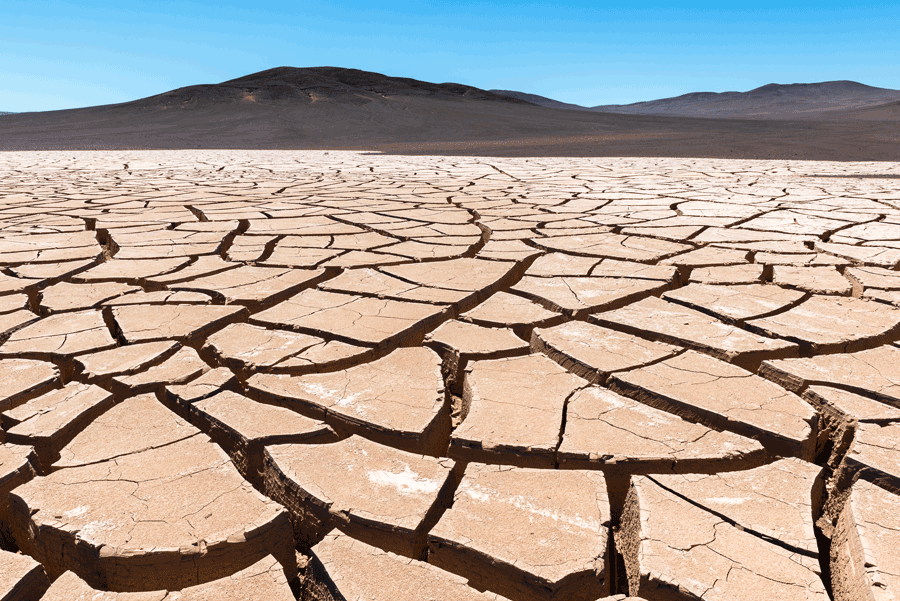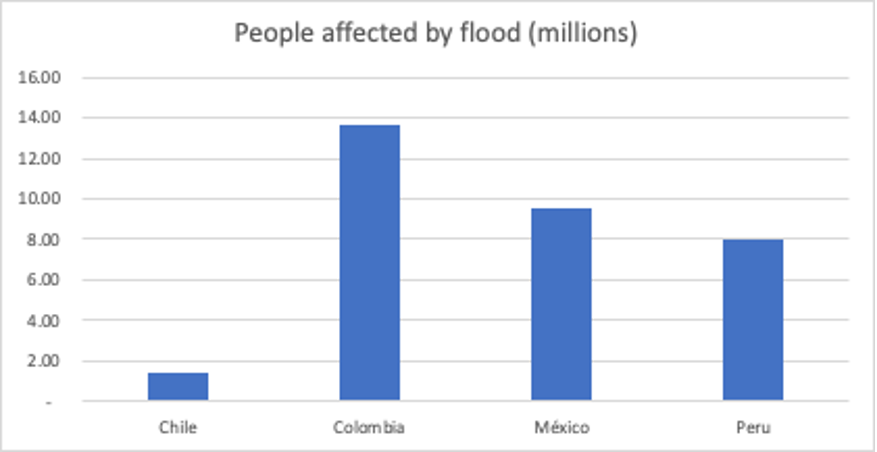 Dry cracked earth, Atacama (Chile).
Dry cracked earth, Atacama (Chile).
In 2015, fifty-two people died and around 180,000 were affected in Chile by a flood in the Atacama, Antofagasta and Coquimbo regions. Losses from this event reached around US$ 2 billion and the reconstruction took 5 years.
This high cost would have been mitigated if the country had an in-force risk transfer instrument that allowed to transfer the financial impact of a particular risk to a third party like capital markets, insurance, reinsurance, among others. These instruments aim to transfer risks cost-efficiently by providing financial relief to support the State, helping to finance both a rapid response for emergency care and the subsequent reconstruction.
Due to their location in the Pacific Ring of Fire and its climate conditions, Chile, Colombia, Mexico and Peru are highly exposed to the occurrence of disasters of geological or hydrometeorological origin. These risks have the potential to impact a large part of its population and generate losses that affect the fiscal situation, as well as the economic and social development of its citizens.
Since 2018, the World Bank supports this group of countries, belonging to the Pacific Alliance (PA), in the process of evaluating different transfer instruments for hydrometeorological risks, such as flood and drought, among others. In this context, work has been done in identifying the hydrometeorological risks and analyze its fiscal and socioeconomic impact for each of the countries.
Graphic No. 1: Economic losses and affected people
Source: Catastrophic risk modeling and analysis for the Pacific Alliance (Chile, Colombia, Peru, México), World Bank, 2020
Main risks
The Pacific Alliance countries has lost more than US$ 76 billions due to floods between 1926 and 2019 and around 32 million people has been affected.
*Information (years) Chile: 1965 – 2019; Colombia: 1926-2019; Mexico: 1933-2019; Peru:1941-2019

On the other hand, drought has affected more than 13 million people in the PA countries and has generated more than US$ 12 billions of losses.
These risks have a great impact on countries finances, and especially on the quality of life of their population. Therefore, this information has allowed governments to decide in an informed and timely manner on which risks to further analyze and consider for a possible coverage. Similarly, these risks take on greater relevance as the climate change effects will lead to an increasingly frequency and/or severity of these events.
In general, the countries have focused their attention on risks related to drought, rains and floods, considering their very particular characteristics.
These countries will jointly seek a way to protect themselves against the economic and social impact that the materialization of these risks may generate, through a transfer instrument that could become the first Hydrometeorological Cat Bond or, if the seismic risk is included, in the first Multi-Risk Cat Bond.
Therefore, the four countries will reduce the losses that these events may cause, prioritizing the efficient use of their resources and ensuring timely attention to the people affected by the occurrence of these events.
Catastrophic risks management has been positioned as an area of knowledge of profound and urgent interest. Chile has successfully concluded their Pro Tempore presidency in the Council of Ministers of Finance of the Pacific Alliance with substantial progress towards a catastrophic risk management agenda, which allows the PA countries to jointly face the risks of an economic era inevitably linked to climate change and natural events, so relevant in these four countries.
At a time when the Covid-19 pandemic has caused significant long-term damage to the economy and social situation of the countries, this type of initiatives are the ones that will allow for a more resilient economic recovery when facing natural disasters.








Join the Conversation